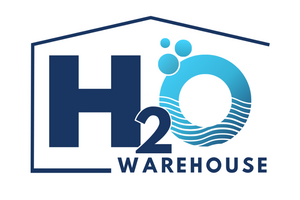Rotten Egg Smell
Dealing with Rotten Egg Smell in Water: Causes, Risks, and Remedies
The presence of a rotten egg smell in water can be off-putting and concerning for homeowners, indicating the presence of hydrogen sulphide gas or sulphur-related compounds. Understanding the causes, potential risks, and effective remedies for addressing this odour issue is crucial for maintaining water quality and ensuring a pleasant drinking experience.
Causes of Rotten Egg Smell:
- Hydrogen Sulphide Gas: The most common cause of a rotten egg smell in water is the presence of hydrogen sulphide gas (H2S), a naturally occurring compound produced by sulphur-reducing bacteria in groundwater or well water. These bacteria thrive in oxygen-deprived environments, such as deep wells or plumbing systems with stagnant water.
- Sulphur Compounds: In addition to hydrogen sulphide gas, other sulphur-containing compounds, such as sulphates, sulphites, or organic sulphur compounds, may contribute to the rotten egg smell in water. These compounds can result from natural geological processes, industrial activities, or microbial reactions in water sources.
Risks Associated with Rotten Egg Smell:
- Aesthetic Concerns: The rotten egg smell in water can be highly unpleasant and aesthetically displeasing, affecting the taste and odour of drinking water, as well as household activities such as bathing, cooking, and cleaning. Consumers may find the odour objectionable and may avoid using or consuming water with a noticeable sulphur smell.
- Health Considerations: While the presence of hydrogen sulphide gas in water may impart a foul odour, it generally does not pose significant health risks at low concentrations. However, prolonged exposure to high levels of hydrogen sulphide gas can cause irritation of the eyes, nose, throat, and respiratory system in some individuals.
Remedies for Rotten Egg Smell:
- Shock Chlorination: Shock chlorination involves the addition of chlorine-based disinfectants, such as chlorine bleach or chlorine tablets, to water systems to eliminate sulphur-reducing bacteria and neutralise hydrogen sulphide gas. This treatment method helps disinfect plumbing systems, eliminate odours, and restore water quality.
- Aeration: Aeration systems introduce air into water to promote oxidation and the release of dissolved gases, such as hydrogen sulphide, from water. Aeration helps remove sulphur odours and improve water quality by facilitating the escape of volatile compounds into the atmosphere.
- Activated Carbon Filtration: Activated carbon filtration systems, such as carbon block filters or granular activated carbon (GAC) filters, can effectively remove hydrogen sulphide gas and sulphur-related compounds from water. These filtration systems adsorb odorous compounds onto the surface of carbon particles, providing clean and odour-free water for consumption.
Conclusion:
Addressing the rotten egg smell in water requires identifying the underlying causes and implementing appropriate remedies to improve water quality and eliminate odours. By understanding the sources, risks, and remedies for sulphur-related odour issues, homeowners and water utilities can take proactive measures to ensure access to clean, safe, and odour-free drinking water. Shock chlorination, aeration, and activated carbon filtration are effective treatment options for mitigating rotten egg smells and restoring water quality for residential and community water supplies. Regular maintenance, water testing, and monitoring are essential for preventing odour issues and maintaining satisfactory water quality standards.
- Choosing a selection results in a full page refresh.

